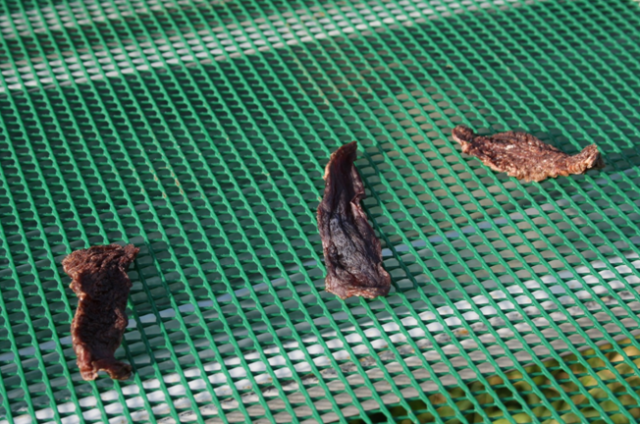Laboratory of Biofuels - S38
This laboratory is focused on the study of biomass - a promising renewable energy source with great potential. The purpose of this operation is to research the properties of solid biofuels (pellets and briquettes) made of different types of biomass and mixtures thereof, including interesting energy crops and agricultural waste. The Biofuels Laboratory is fully equipped with modern equipment such as a calorimeter, a muffle furnace, a laboratory oven drier, a vibrating device for determination of particle size distributions, and a flue gas analyzer. A part of the laboratory is also a hammer mill for the processing of biomass and a briquetting press for the production of compacted fuels.
The laboratory is mainly engaged in measuring the main physico-mechanical and chemical parameters of various materials (moisture content, gross calorific value, ash content, particle size, content and composition of emissions during combustion, etc.) following EN and ISO standards.
Head: Ing. Bc. Tatiana Ivanova, Ph.D.
Briquetting of biomass
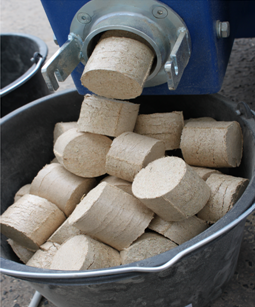
Laboratory dryer
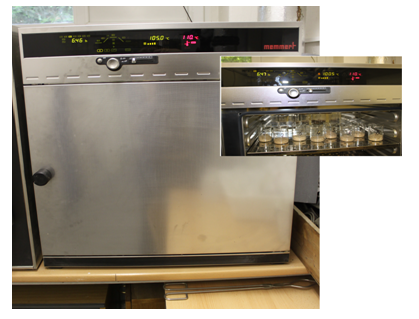
Determination of calorific heat by calorimetric method
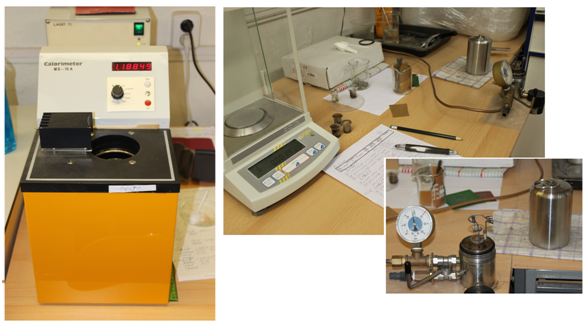
Laboratory of Food Processing Technologies
This laboratory focuses on the study of the technological aspects of food processing, with an emphasis on their applicability in the tropical areas of the developing world. A priority of our research is food preservation by drying, using simple and economically feasible techniques to support renewable energy sources (e.g. solar drying, solar cooking). The application of different pretreatments is investigated before drying as well as the effect of these pretreatments on the organoleptic properties of the final product. The laboratory is equipped with an experimental solar drier, conventional electric driers for drying while carrying out experiments, and a climate chamber, where it is possible to simulate the drying of food in the tropics and subtropics. Besides the equipment used to carry out these experiments, the laboratory is equipped with devices to monitor the drying process and evaluate product quality. This is essentially a balance for monitoring the loss of moisture content, thermometers, instruments for measuring the relative humidity of the drying air, a thermal anemometer for monitoring the flow rate of the drying air, a pyranometer radiation monitor for solar applications. Furthermore, there is a colorimeter to evaluate color difference using the CIE L* a* b* system, and a device for determining the water activity aw in processed food samples. The laboratory is also engaged in modeling the drying process and the effect of various treatment techniques on food quality.
Head: Doc. Ing. Jan Banout, Ph.D.
Marinating meat before drying
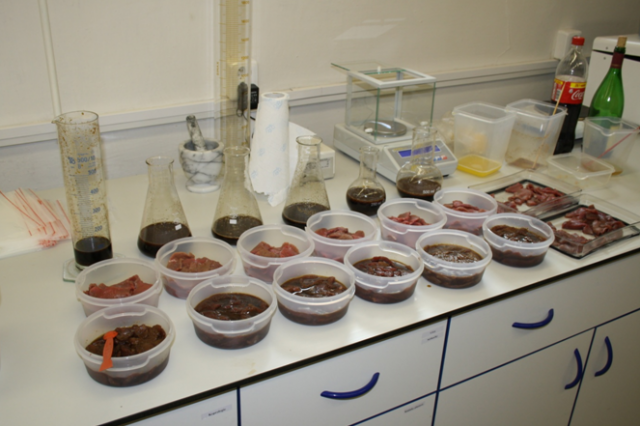
Solar drying plant on the land of the CULS
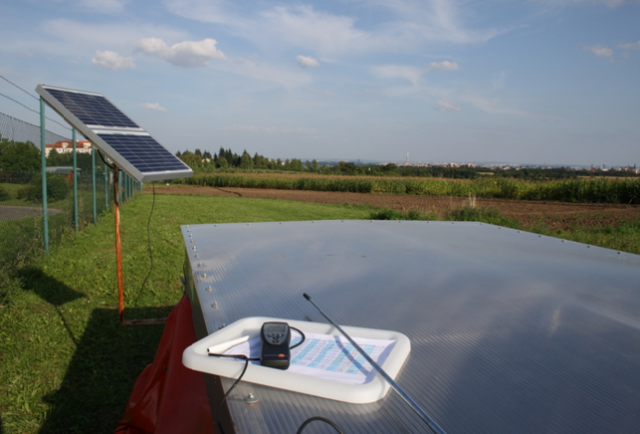
Devices: anemometer, temperature and humidity sensors, contactless thermometer
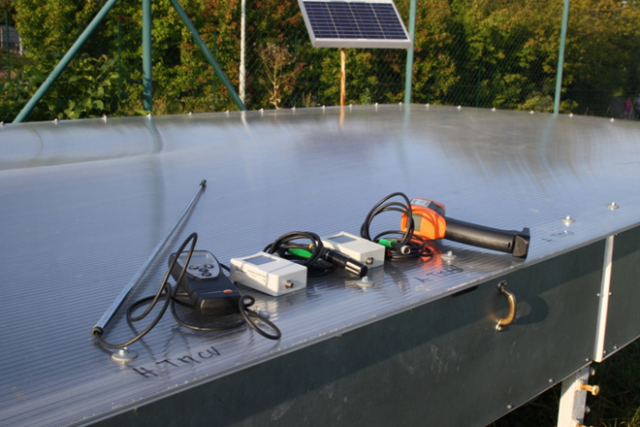
Dried meat
